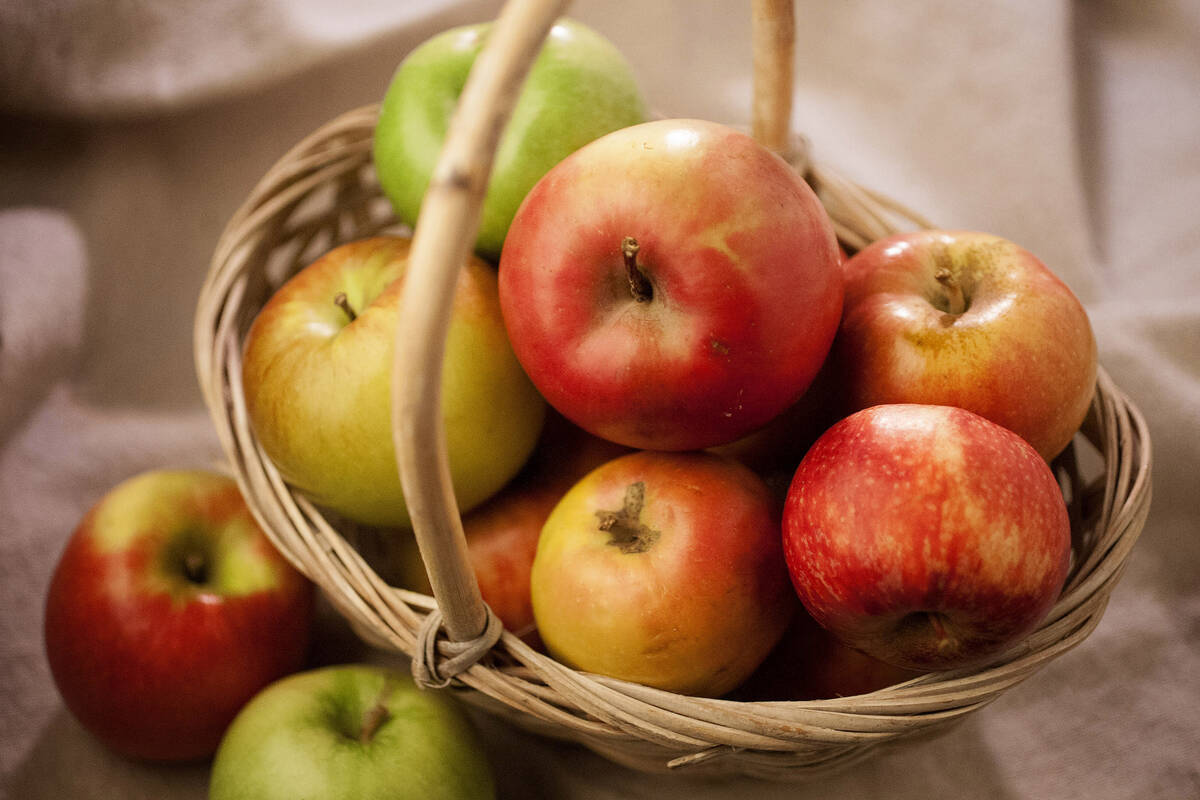7 fruits that experts recommend eating weekly for better health
An apple a day might keep the doctor away, but experts say you need more kinds of fruit than that to maintain good health.
Consuming a variety of fruits each week can lead to a healthier gut, which can “improve heart health, boost immunity and even benefit mental health,” according to Eating Well. Here are seven fruits, shown through studies and recommended by experts, that you should add to your weekly menu.
Apples
Apples are an excellent source of fiber, both soluble and insoluble. Soluble fiber helps food move more quickly through your digestive tract, and insoluble fiber “helps to bulk up stool” so it’s easier to go to the bathroom.
In addition, “Apples have many anti-inflammatory and antioxidant properties that have been shown to reduce the risk of many chronic diseases such as cardiovascular disease, diabetes and cancer due to the polyphenolic compounds,” Lon Ben-Asher, a dietitian and nutritionist at Pritikin Longevity Center, told Eating Well.
Avocados
“Avocados are rich in fat-soluble vitamins, such as vitamin E and K, which help support healthy skin, hair, nails and cell membrane permeability, as well as water-soluble vitamins such as vitamin C, and many B-vitamins that help support the immune system and ocular health,” Ben-Asher said. “They are also great sources of healthy, polyunsaturated omega-3 fats and monounsaturated fats, which are used to replace saturated fats, have been shown to reduce cardiovascular disease and improve blood sugar control.”
Bananas
“Bananas are high in dietary fiber, which helps keep food in your stomach longer, reducing hunger and keeping you satiated, thus contributing to better weight management and reduced risk of obesity,” Ben-Asher said.
Also, they may improve blood sugar levels, support heart health because they’re high in potassium, improve kidney health and support exercise recovery, according to Healthline.
Blackberries
“Throughout history, people have used blackberry fruits, leaves and brambles to heal a wide range of illnesses,” registered dietitian Julia Zumpano told the Cleveland Clinic. “Though modern medicine has replaced these medicinal uses, we’re learning that blackberries have many other health benefits.”
They are a rich source of antioxidants, manganese, copper, vitamin A, vitamin E and vitamin K. These nutrients can reduce inflammation, prevent cardiovacular disease and cancer, and improve brain function.
Blueberries
Blueberries are delicious fresh, frozen and in recipes. They contain a plant compound called anthocyanin, which is a flavonoid that can have an antioxidant effect.
“Blueberries are a nutritional powerhouse,” Ben-Asher told Eating Well. Just one cup provides 24 percent of your recommended daily allowance of vitamin C.
In addition, the small, blue fruit has been shown to protect against heart disease and cancer and can help maintain bone strength, mental health, and healthful blood pressure, according to Medical News Today.
Oranges
Most people equate vitamin C with oranges, but that’s not the only benefit you get from the pulpy fruit. They are also full of potassium, iron, calcium, vitamin E and numerous B vitamins, Eating Well reported. The pulp also contains polyphenol, which can help to protect cells from damage, according to a study in PLOS One.
Prunes
Prunes are often recommended for those with digestive problems, but they are also high in vitamin K, which can promote blood clotting and bone building. Although prunes and plums contain the same vitamins and minerals, prunes can be eaten up to a year after being stored in the refrigerator in a sealed container, according to WebMD.


















